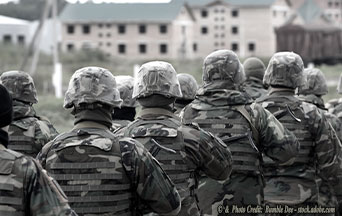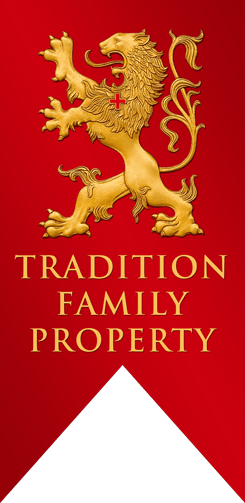Why Are Cubans Fighting in Ukraine?
by John Horvat II June 17, 2025
In the eighties, hundreds of thousands of Cuban troops fought as proxy soldiers for the Soviet Union in Angola. After the fall of the Iron Curtain, that relationship supposedly ended.
It now appears that the old partnership has returned. The Russian government is signing up thousands of desperate Cuban citizens who are enticed to enter its military. Many have appeared on the frontlines in Ukraine. Cubans now join North Koreans and make up the second-largest contingent of mercenaries in the bloody battle to subjugate Ukraine.
Deceptive Recruitment
Ukrainian intelligence claims that nearly twenty thousand Cubans have “joined” the Russian Army since the 2022 invasion. These enlistments are often done with the Cuban government’s unofficial complicity. Presently, six to seven thousand find themselves on the battlefield.
Many captured Cubans claim they were lured to Russia under false pretenses. An extensive report in the Spanish newspaper El Pais details the massive infusion of Cubans into the Ukrainian conflict. Author Carla Gloria Colome interviewed prisoners in Spanish who reported that Russian job recruiters promised them generous monthly salaries of $2,000 [this is a lot of money in Communist-starved Cuba], construction jobs, and a Russian passport. They were not always told about the Army option they faced when they finally reached Russia. Thus, many now find themselves on the front lines in Ukraine, where 200 to 300 Cubans have died.
Everyone Wants to Get Out of Cuba
The job recruitment process is facilitated by conditions in Cuba. Seven decades of socialist rule have taken their toll on the infrastructure of this once-prosperous country. Basic necessities, including sugar (which was Cuba’s chief export), are now in short supply. Nationwide blackouts are increasingly common as aging power plants decay. The country has experienced its largest mass exodus in recent history. Everyone wants to get out of Cuba.
According to Ukraine’s intelligence service, which analyzes captured identity documents, everyone who can is escaping the prison island, including people as young as 18 and as old as 62. The average age of the captured Cuban soldier is 38.
Generous Job Packages Turn Into Enlistment Scams
Those desperate Cubans who cannot afford to find a way to the United States look to Russia. Recruiters target Cuban WhatsApp contacts and social media accounts with “packages” offering generous benefits such as construction jobs and free travel to Russia. Cubans take advantage of the fact that they have never needed visas to go to Russia.
Upon arrival in the promised land of Russia, many sign contracts that are written in Russian, a language they do not understand. Thus, the new immigrants find themselves enlisted in the Russian Army. Many do not receive the promised signing bonus, and others complain of irregular pay schedules. Some bitterly denounce these job recruitment drives as scams designed to recruit soldiers for the Army.
Legal Limbo
Officially, the Russian and Cuban governments do not acknowledge this human trafficking operation. When captured in the field, the Ukrainian government finds that neither Moscow nor Havana will recognize the prisoners as mercenaries or take them back in official exchanges. These poor victims of Communism officially do not exist and thus remain in legal limbo. One prisoner said he preferred to stay in a Ukrainian prison rather than return to the miseries he endured in Cuba.
Cuba engages in the trade of its citizens quite freely since it owes a lot to Russia. During the long Soviet years, Russia was an ally that sustained Castro’s communist regime with financial and military aid. In post-Soviet times, Russia lent Cuba $2.3 billion from 2006 to 2019. Vladimir Putin forgave 90 percent of Cuba’s $35 billion debt to Russia. He is constantly sending small aid packages to prop up the decrepit regime on the island.
Brutal Payback
Given this aid, Cuban officials look the other way or actively help out when Russian recruiters line up candidates to fill the gaps in their military ranks.
“There is no doubt that the Cuban regime is actively participating in the war against Ukraine, facilitating the active recruitment of mercenaries, and sending its own security troops,” says Maryan Zablotskyy, a Ukrainian legislative assembly member. The legislator estimates that 40 percent of the Cuban recruits are part of the government military apparatus, a fact described as “indisputable.” When the regime participates in recruiting, the Cuban government can pocket a signing bonus of $50,000.
The presence of communist Cuban (and North Korean) troops in Ukraine shows how little has changed in the world panorama. The Spanish-language interviews with captured Cubans show how unwilling individuals are coerced to expose their lives for a cause that is not their own. This tragic situation is one more example of why the West must help Ukraine against Russia’s invading forces.
[ ??? To ostatnie zdanie. Dziwny pogląd. Dla mnie – niespodziewany. Dlaczego TFP jest tak pro- Zelenskie? Bo to nie do Ukrainy oni mają sympatię.. M. Dakowski




